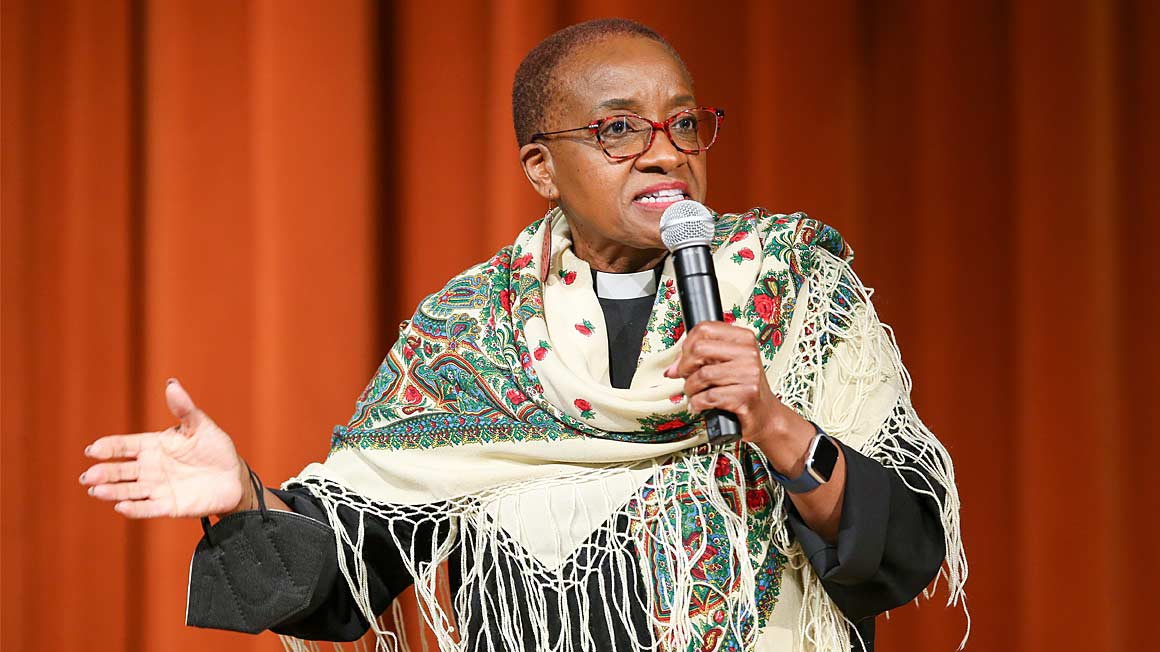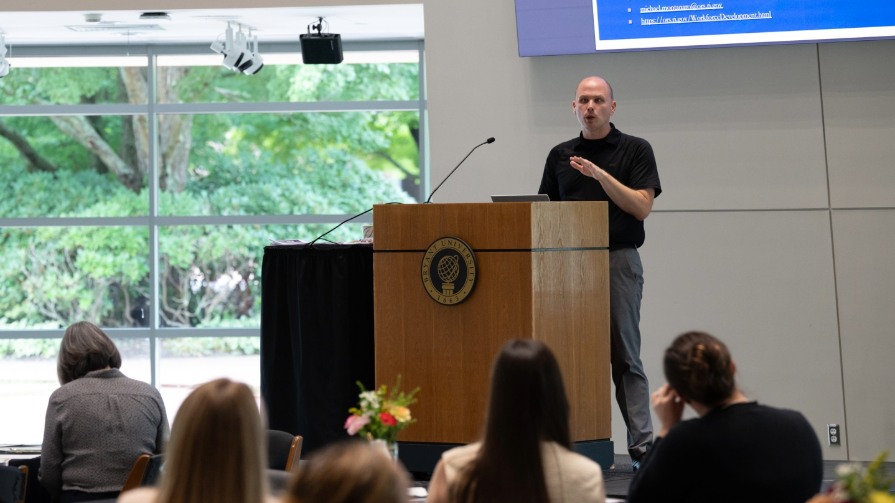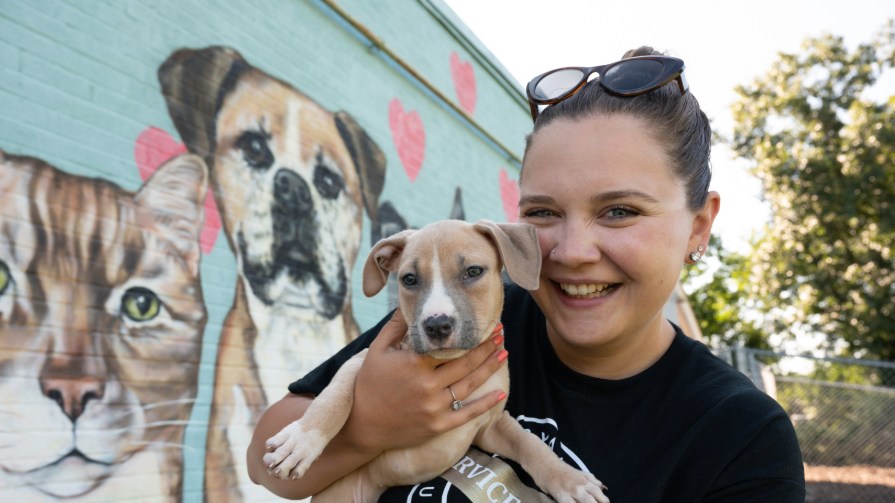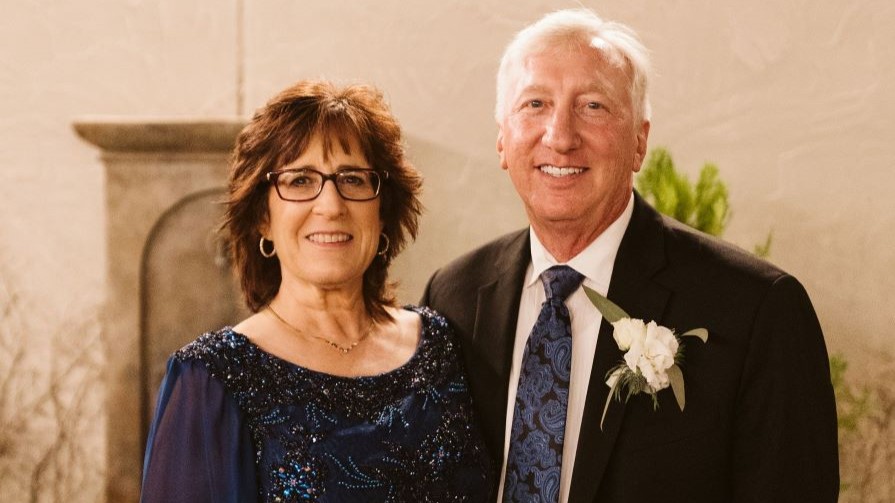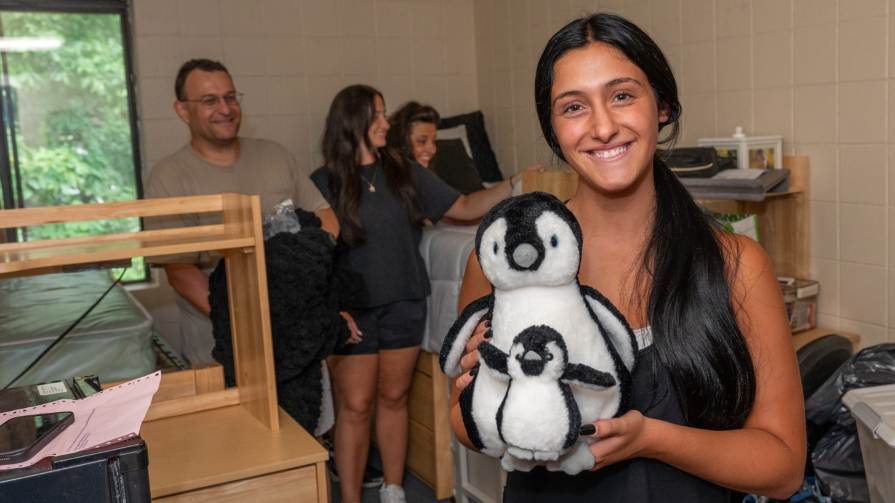Reverend Nontombi Naomi Tutu, daughter of 1984 Nobel Peace Prize winner and leading anti-apartheid activist Desmond Tutu, joined the Bryant community in celebrating International Women’s Day with her talk, “Our Shared Humanity: Exploring the Conversation of Race, Gender, International Affairs and Equity,” an event sponsored by the Hochberg Women’s Center, International Affairs, the Women’s Leadership Living and Learning Community, the Alliance for Women’s Awareness, the Global Studies program and the International Student Organization at Bryant University. Tutu's areas of expertise include gender, race, international relations, social justice and peace.
The challenges of growing up black and female in apartheid South Africa formed the foundation of her life as an activist for human rights, says Tutu. Apartheid, present for most of the last half of the 20th century, was a former government policy of racial segregation and discrimination against the non-white majority in South Africa. Her experiences in South Africa during that time taught Tutu that “our whole family loses when we accept situations of oppression” and “the teaching and preaching of hate injure us all.”
“Our shared humanity is the only thing that is going to save us, save our future and allow us to build a just society.”
“Her message is so important, and I am so grateful to the campus partners that worked together to bring her to campus,” said Kelly Boutin, M.Ed., Director of the Hochberg Women’s Center and Pride Center. Her presentation “emphasized the importance of telling our stories, both to ourselves and to others, and to pay attention to how we tell our stories and receive the stories of others. She showed us how in story telling and receiving, we create a shared humanity.”
During her talk, Tutu recounted two stories on shared humanity from her experience as a gender activist in South Africa. One experience involved her doctoral-level research and field work where she examined rural communities in the eastern cape of South Africa, which because of the labor system in apartheid South Africa, were comprised mostly of black women. To understand how they “sustained and empowered themselves as forgotten community,” Tutu interviewed some of the women and observed them during their physically demanding routines as they cared for their families and communities.
Despite their hard work and the economic and apartheid systems they upheld, said Tutu, the women “believed they were doing nothing.” What does this have to do with shared humanity? she asked. “They minimized their role, their impact … because they lived in a community and society that made them believe that they were less-than,” answered Tutu.
“Humanity cannot be split. ... There cannot be justice for anybody if there is injustice for some.”
“It was only when they had someone speak to them with eyes from outside to remind them of the importance of the work they were doing and how fully human they were that they began to pay attention to the falseness of the stories about them, and how a false story about themselves was also a false story about their country.”
“Humanity cannot be split,” she continued. “You cannot dehumanize another human being and not dehumanize yourself. There is no way can you talk about a just system when there is injustice built into that system ... whatever the injustice is. There cannot be justice for anybody if there is injustice for some.”
In her second story, taken from her time working at the African Gender Institute, she discussed the way in which racial divisions pose a barrier to gender solidarity. “If we’re about working for justice, we have to be about acknowledging our differences are not a place of division … but in fact are a place of gifting, empowering, of opening the space for, and to, one another.”
“Our shared humanity is the only thing that is going to save us, save our future and allow us to build a just society,” said Tutu.
Read more about Reverend Nontombi Naomi Tutu and her work for social justice.
